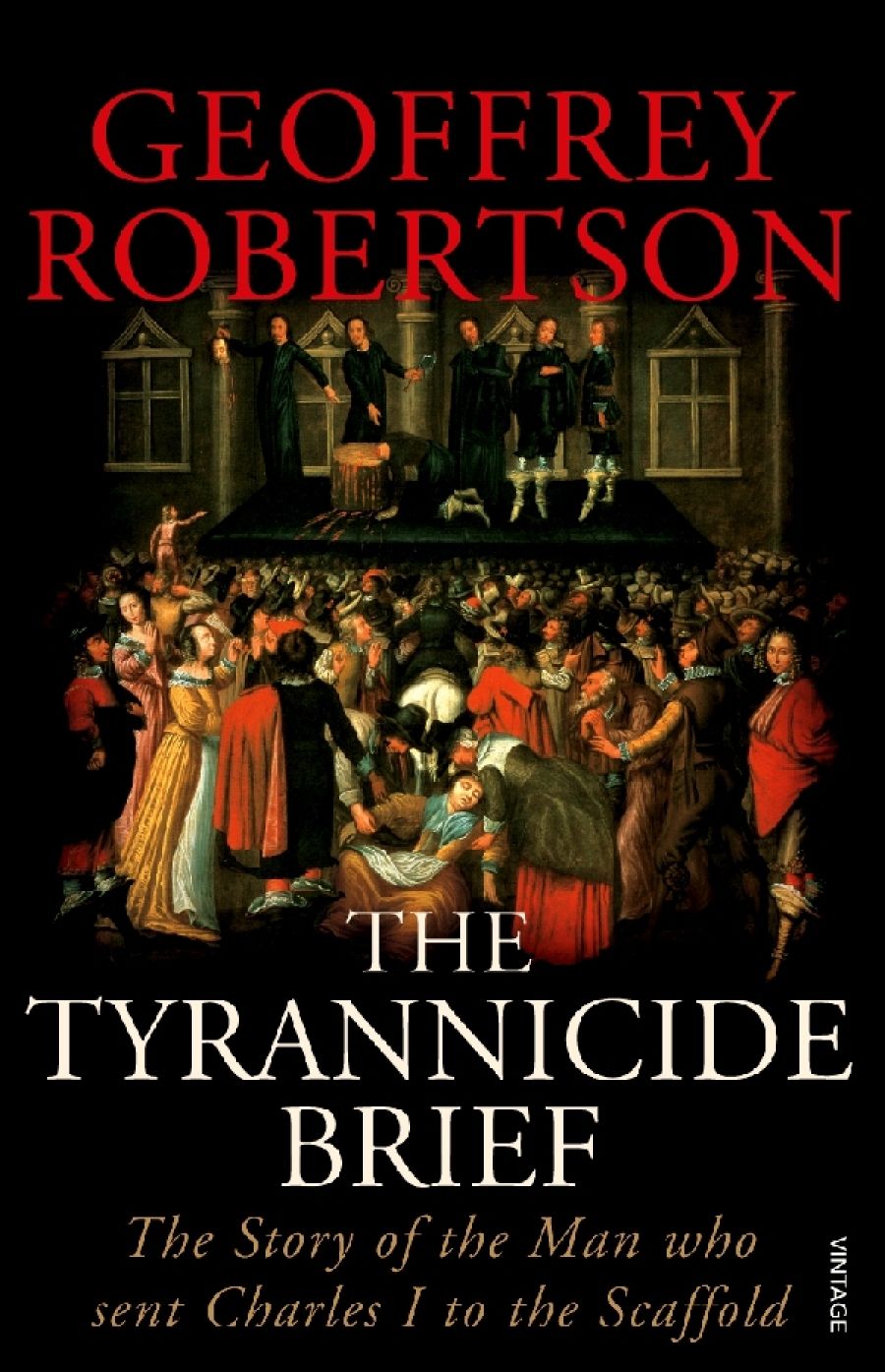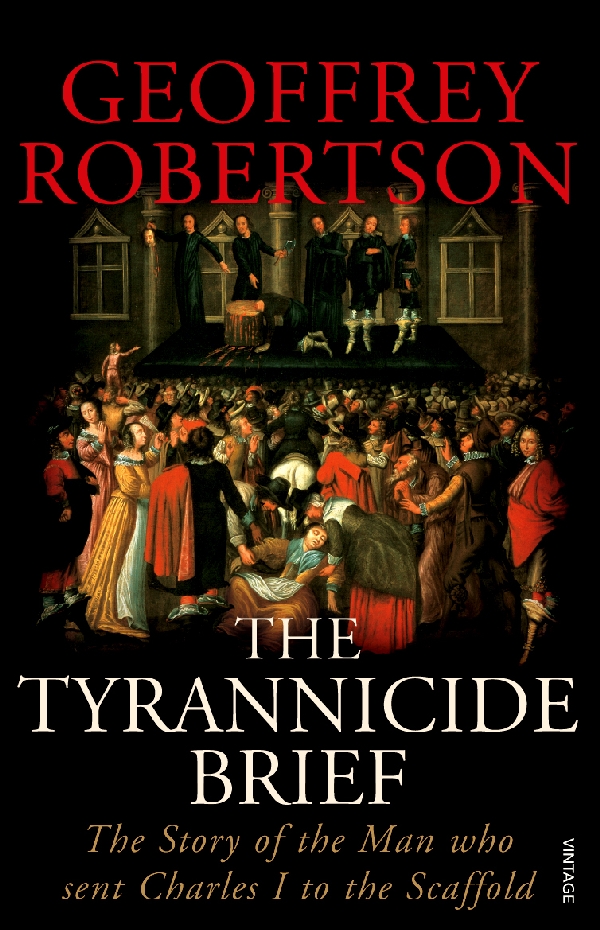
- Free Article: No
- Contents Category: Biography
- Review Article: Yes
- Article Title: Cooke's legacy
- Online Only: No
- Custom Highlight Text:
Geoffrey Robertson, the author of The Tyrannicide Brief, enjoys the same high public profile as those old lags who constitute the élite of Australian expatriates in London: Clive James, Germaine Greer, and Barry Humphries. In his case it is as a leading international human rights lawyer, the author of Crimes against Humanity (1999) and The Justice Game (1998), and host of the popular television series Hypotheticals.
- Book 1 Title: The Tyrannicide Brief
- Book 1 Subtitle: The story of the man who sent Charles I to the scaffold
- Book 1 Biblio: Chatto & Windus, $55 hb, 429 pp, 0701176024
- Book 1 Cover Small (400 x 600):

- Book 1 Cover (800 x 1200):

Robertson’s particular interest centred on John Cooke, a barrister, who, in the words of the book’s subtitle, was ‘the man who sent Charles I to the scaffold’. This is, of course, only partly true; many other interests were involved. But in accepting the brief to prosecute the king, Cooke showed courage, which distinguished him from most of his peers. A devout Christian and puritan, he also ‘waited on God’ for advice before acting. Eleven years later, in 1660, Cooke was hanged, drawn, and quartered following a manifestly unfair trial. It was part of an impassioned display of royalist revenge orchestrated by the new king, who had, some believed, secretly witnessed his father’s decapitation.
Royalist historians derided Cooke as a man of no financial substance and little forensic ability. Others overlooked or downplayed his role in the trial and ignored his writings. The John Cooke discovered by Geoffrey Robertson is a figure of real historical significance, who contributed much more to British social and legal history than his prosecution of Charles I.
Unlike most lawyers (then and now), Cooke was born into relatively poor circumstances and a strong puritan tradition. He studied law, but with insufficient money and status to follow his profession in London, he arranged his admission to the Dublin Bar. Three years later, he went on an extensive tour of Europe, which tested but did not weaken his puritan conscience. This was his background before he returned to London and set up practice in Gray’s Inn, where he soon displayed strong views about social issues and law reform.
In the 1640s England was still suffering from the consequences of the Protestant Reformation. The Anglican Church was suspected of popery; ‘pig-headed Presbyterians’ were locked out of the parliament; Protestantism embraced a multiplicity of strange sects; the king and the parliament were at loggerheads; there were two civil wars. It was an easy time to make enemies. Cooke made enemies in the medical profession by successfully defending a herbalist and alleged quack, and by his attacks on the monopoly of the College of Physicians. Nor did the legal profession take kindly to his suggestion that ten per cent of a lawyer’s time should be given to the service of the poor, that their incomes should be capped at £20,000 or by his attacks on judicial favouritism. Radical notions like this were regarded as aberrant. Nonetheless, Cooke’s reputation as a lawyer continued to grow. In 1646 Cooke published his Vindication of the Professors and Profession of the Law, a treatise on law reform and legal ethics. It emphasised parliament’s role in reforming the law, speedy trials in the interests of justice, and limitation of the death penalty to the most serious crimes. In other writings, Cooke argued for sensible and progressive reform of land laws. But his most lasting legacy was his development of the so-called ‘right to silence’, which protects an accused person from self-incrimination. Today it is still entrenched in the legal systems of more than fifty countries.
Geoffrey Robertson argues persuasively that for 350 years the British have done their best to bury the history of their one short republic and the reputations of its heroes, such as Cooke. The Tyrannicide Brief goes a long way towards redressing the balance. It was the first brief to prosecute a tyrant for crimes against his subjects. At the end of World War II, the Nuremberg Trials followed the precedent. By the beginning of the twenty-first century, the practice inaugurated by Cooke was being followed in tribunals such as the International Court of Justice. Cooke’s legacy and spirit live on.


Comments powered by CComment